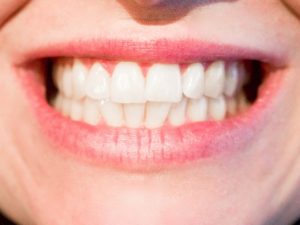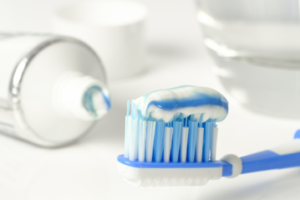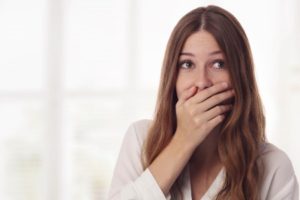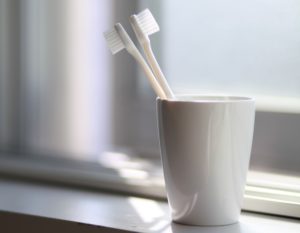Dentist 60637
 Teeth grinding, known as bruxism, is a habit many get into without even realizing it. Grinding your teeth can be damaging for several reasons. If you or your child have been struggling with teeth grinding, make an appointment to see us. We will assess the damage to the teeth, as well as assist you in addressing solutions. Here’s what you need to know about teeth grinding.
Teeth grinding, known as bruxism, is a habit many get into without even realizing it. Grinding your teeth can be damaging for several reasons. If you or your child have been struggling with teeth grinding, make an appointment to see us. We will assess the damage to the teeth, as well as assist you in addressing solutions. Here’s what you need to know about teeth grinding.
Why Do We Grind Our Teeth?
Teeth grinding does not have a single cause. Instead, it can occur for several different reasons. Stress and anxiety, an improper bite, and sleep disorders are all potential causes. If your teeth are not aligned properly, they can rub against each other while you bite or chew. Many people grind their teeth without even realizing what they are doing.
The Journal of the American Dental Association found that smoking and alcohol result in an increase in teeth grinding. In fact, smokers and people who drink alcohol were found to be twice as likely to experience bruxism as those who do not have these behaviors.
What Grinding Does Your Teeth
Grinding wears down your teeth causing damage, increased sensitivity, and even loosening teeth. Teeth are like bones. They can crack or fracture, and grinding has been known to cause both issues. Your teeth can also be flattened from constantly rubbing against one another. Grinding not only damages your teeth, but it leaves you more susceptible to other complications in the future, as well. Beyond your teeth, grinding can lead to jaw pain and headaches. If you wake up with a sore, tired jaw on frequent occasions, this could be a sign that you grind or clench your teeth throughout the night.
What We Can Do
If grinding is an issue for you, make an appointment to see us. First, we will assess the extent of the damage that may have already occurred due to grinding. We will then work with you to identify a solution that will keep your teeth strong and healthy. In some cases, we may recommend wearing a mouth guard at night to prevent your teeth from pressing against one another. Though it can be challenging, if your grinding is caused by stress, the top priority will be to find ways to reduce stress and anxiety. Stress is a more common cause for adults than children. The primary cause of grinding in children is improper alignment.
If grinding your teeth has become an issue, please do not wait until it leads to sensitivity and pain. Schedule an appointment to see us for an evaluation and treatment plan. Our professional dental team will work with you to address the cause of your grinding, and determine a solution that will protect your teeth from any further damage.
Woodlawn Dental Gallery of Chicago
1502 E 63rd St., Chicago, IL 60637
(773) 496-5138


 Brushing your teeth is the cornerstone of your oral health care – but is there room for improvement? Use our guide to determine if you’ve fallen into these common brushing habit mistakes, so you can keep your smile healthy and bright.
Brushing your teeth is the cornerstone of your oral health care – but is there room for improvement? Use our guide to determine if you’ve fallen into these common brushing habit mistakes, so you can keep your smile healthy and bright. Chewing and smoking tobacco are known to cause severe health problems, particularly in the lungs. But the risks to your mouth and teeth can be just as extensive and alarming. If you use tobacco, stop. Here’s what tobacco can do to your oral health.
Chewing and smoking tobacco are known to cause severe health problems, particularly in the lungs. But the risks to your mouth and teeth can be just as extensive and alarming. If you use tobacco, stop. Here’s what tobacco can do to your oral health. Your smile is one of the first things a person will notice when you meet. If you would like to improve your smile with a simple procedure, teeth whitening may be a great option for you, especially if you have stained, dull or discolored teeth. Our dental office is providing teeth whitening services to new and existing patients.
Your smile is one of the first things a person will notice when you meet. If you would like to improve your smile with a simple procedure, teeth whitening may be a great option for you, especially if you have stained, dull or discolored teeth. Our dental office is providing teeth whitening services to new and existing patients. Oral cancer does not discriminate. It affects those of all ages, genders and races. Smokers do develop oral cancers at higher rates than non-smokers. However, this does not absolve the rest of the population from being at risk, as well.
Oral cancer does not discriminate. It affects those of all ages, genders and races. Smokers do develop oral cancers at higher rates than non-smokers. However, this does not absolve the rest of the population from being at risk, as well.  You may not realize it, but you could be at risk of developing an unsightly medical condition known as hairy tongue. While it is harmless in most cases, hairy tongue is still an unpleasant ailment. The causes are not always completely known, but practicing good oral hygiene at home and visiting our dental office for cleanings can help prevent the issue. Here’s what you need to know.
You may not realize it, but you could be at risk of developing an unsightly medical condition known as hairy tongue. While it is harmless in most cases, hairy tongue is still an unpleasant ailment. The causes are not always completely known, but practicing good oral hygiene at home and visiting our dental office for cleanings can help prevent the issue. Here’s what you need to know. Do you brush your teeth after lunch? If you’re one of the millions of people who work outside the home, chances are you don’t have the time or resources to brush during the day. However, not being able to brush doesn’t mean you can’t protect your teeth at work.
Do you brush your teeth after lunch? If you’re one of the millions of people who work outside the home, chances are you don’t have the time or resources to brush during the day. However, not being able to brush doesn’t mean you can’t protect your teeth at work. Tooth sensitivity is a condition that can make everyday activities such as eating, drinking, and even walking outside in colder weather painful and unpleasant. If you frequently experience a sharp burst of pain in your teeth when drinking coffee, eating ice cream or being hit by a gust of cold air, sensitive teeth may be the cause. Sensitive teeth are a common, though frustrating issue. The Academy of General Dentistry (AGD) estimates that up to 40 million adults in the United States suffer from this condition.
Tooth sensitivity is a condition that can make everyday activities such as eating, drinking, and even walking outside in colder weather painful and unpleasant. If you frequently experience a sharp burst of pain in your teeth when drinking coffee, eating ice cream or being hit by a gust of cold air, sensitive teeth may be the cause. Sensitive teeth are a common, though frustrating issue. The Academy of General Dentistry (AGD) estimates that up to 40 million adults in the United States suffer from this condition. These are some of the most common questions we hear from parents, and the answers we provide:
These are some of the most common questions we hear from parents, and the answers we provide: Cosmetic dentistry has been around for ages. We’ve noticed that now, more than ever, people are concerned with overall wellness in addition to a beautiful smile. In past years, we had many patients come to us seeking whitening and seeming unconcerned with ridding their smile of infection and decay.
Cosmetic dentistry has been around for ages. We’ve noticed that now, more than ever, people are concerned with overall wellness in addition to a beautiful smile. In past years, we had many patients come to us seeking whitening and seeming unconcerned with ridding their smile of infection and decay.